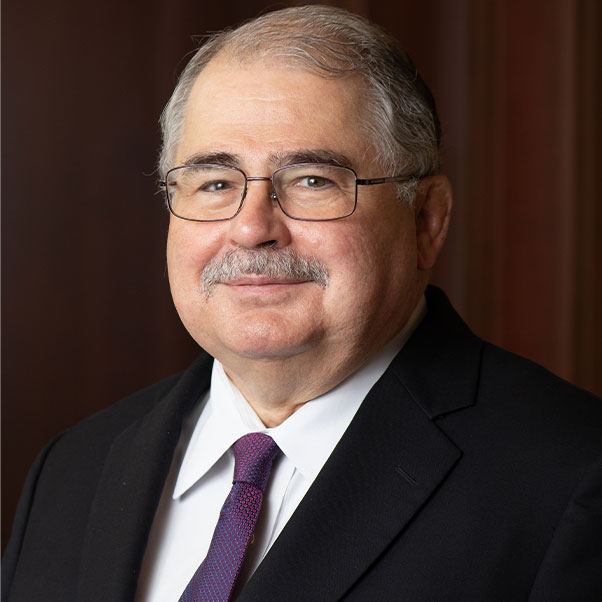Donald G. Gifford, the Jacob A. France Professor of Torts and former dean at the law school, was recognized by the University of Maryland, Baltimore (UMB) with the title of Distinguished University Professor in 2023. The designation is the highest appointment bestowed on a faculty member at UMB. Professor Gifford’s teaching and research interests include Torts, Products Liability, Advanced Torts, and Legal Negotiation.
Professor Gifford is the author or co-author of five books, including both a torts casebook and a legal negotiation text, and numerous articles. Many of these articles focus on the challenges posed by mass product torts, but others address topics including technological change and tort law, how race affects the substantive law of torts, tort remedies for harm to democratic processes, the failure of constitutional originalism in the history of torts, climate change litigation, an empirical study of factors affecting medical malpractice insurance, and the surprising persistence of contributory negligence as a total bar to recover under Maryland law.
Professor Gifford and a co-editor prepare the supplements to Harper, James, and Gray on the Law of Torts, the definitive five-volume torts treatise. His book, Suing the Tobacco and Lead Pigment Industries, features a critical analysis of government tort litigation against manufacturers of products that cause public health problems such as cigarettes and lead pigment.
Professor Gifford was dean of the University of Maryland School of Law from 1992 through 1999. He initiated the efforts to build the current law school building, obtained the legislative approval and funding for the building, raised most of the private contributions for it, and saw the building project through its initial architectural design phases. Under his leadership, the level of private giving to the law school quadrupled. Professor Gifford served in important national leadership positions among law school deans, as both co-chair of the American Bar Association Deans’ Workshops in 1995 and 1996 and as co-chair of the ABA Law School Development Conference in 2001.
Professor Gifford served as chair of the Maryland Lead Paint Poisoning Commission from 1992 until 1995, and in that role was a principal architect of Maryland’s Lead Poisoning Prevention Act. Later, he promoted legislation designed to eliminate or reduce childhood lead poisoning in 10 other states and in the United States Congress working with, among others, then Illinois-State Senator Barack Obama and then U.S. Senator Hillary Clinton. He is a Life Member of the American Law Institute.
Before coming to Maryland, Professor Gifford was the dean of the West Virginia University College of Law and earlier a professor at the University of Florida and the University of Toledo. His students at Florida twice recognized Professor Gifford with awards for outstanding teaching. While at Florida, he worked with the Florida legislature on issues of tort and insurance reform and was the principal draftsman of the Medical Incident Recovery Act of 1988. A native of rural Ohio, Professor Gifford is a graduate of the College of Wooster, where he was valedictorian, and a cum laude graduate of Harvard Law School.

